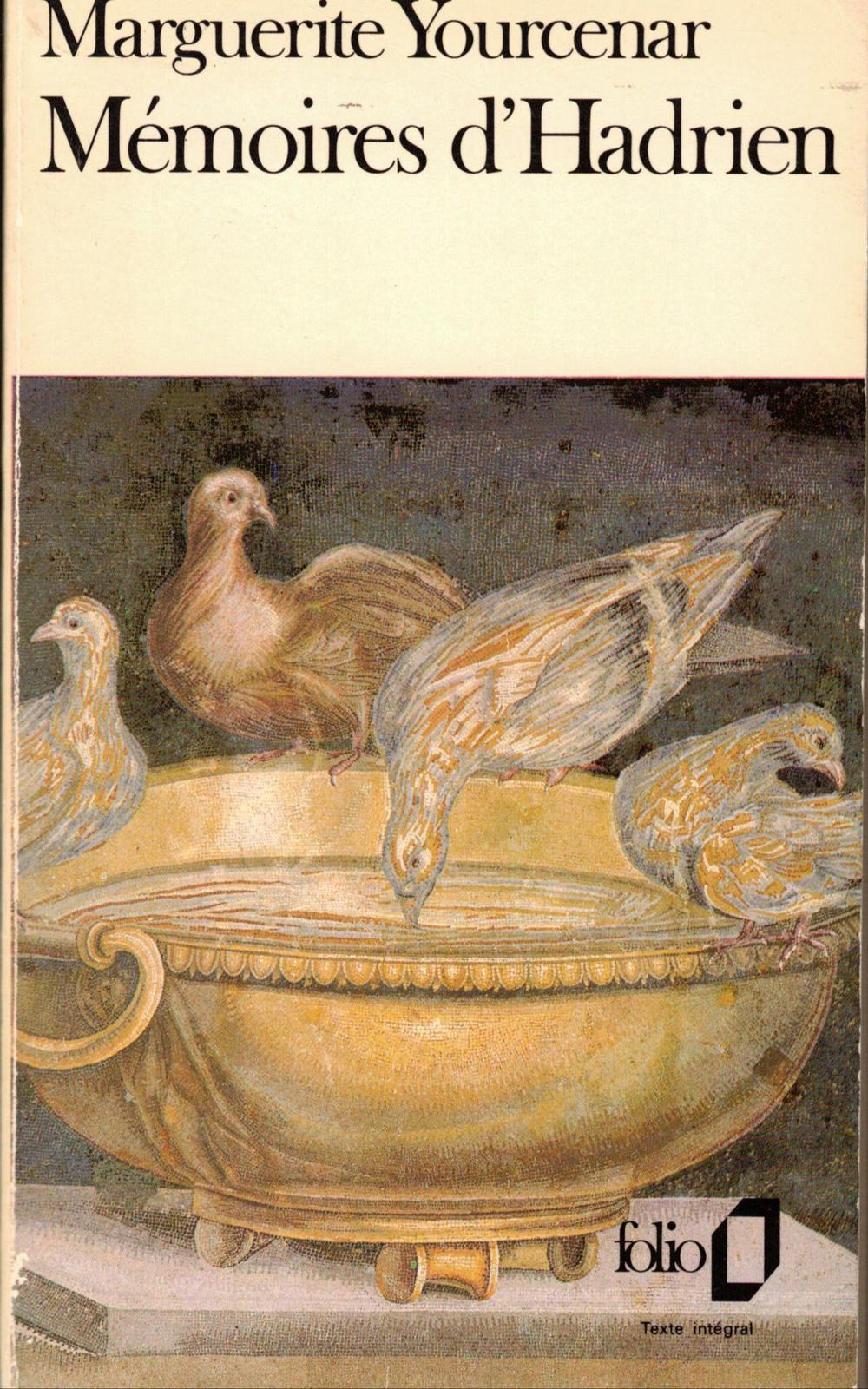Tapa blanda, 384 páginas
Idioma French
Publicado el 16 de diciembre de 1980 por Gallimard, Folio.
suivi de Carnets de notes de Mémoires d'Hadrien Collection Folio No. 921

Tapa blanda, 384 páginas
Idioma French
Publicado el 16 de diciembre de 1980 por Gallimard, Folio.
Memoirs of Hadrian (French: Mémoires d'Hadrien) is a novel by the Belgian-born French writer Marguerite Yourcenar about the life and death of the Roman Emperor Hadrian. First published in France in French in 1951 as Mémoires d'Hadrien, the book was an immediate success, meeting with enormous critical acclaim. Although the historical Hadrian wrote an autobiography, it has been lost. The book takes the form of a letter to Hadrian's adoptive grandson and eventual successor "Mark" (Marcus Aurelius). The emperor meditates on military triumphs, love of poetry and music, philosophy, and his passion for his lover Antinous, all in a manner similar to Gustave Flaubert's "melancholy of the antique world." Yourcenar noted in her postscript "Carnet de note" to the original edition, quoting Flaubert, that she had chosen Hadrian as the subject of the novel in part because he had lived at a time when the Roman gods were no longer …
Memoirs of Hadrian (French: Mémoires d'Hadrien) is a novel by the Belgian-born French writer Marguerite Yourcenar about the life and death of the Roman Emperor Hadrian. First published in France in French in 1951 as Mémoires d'Hadrien, the book was an immediate success, meeting with enormous critical acclaim. Although the historical Hadrian wrote an autobiography, it has been lost. The book takes the form of a letter to Hadrian's adoptive grandson and eventual successor "Mark" (Marcus Aurelius). The emperor meditates on military triumphs, love of poetry and music, philosophy, and his passion for his lover Antinous, all in a manner similar to Gustave Flaubert's "melancholy of the antique world." Yourcenar noted in her postscript "Carnet de note" to the original edition, quoting Flaubert, that she had chosen Hadrian as the subject of the novel in part because he had lived at a time when the Roman gods were no longer believed in, but Christianity was not yet established. This intrigued her for what she saw as parallels to her own post-war European world.